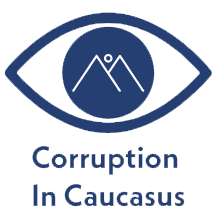Who is Giorgi Bachiashvili?
Giorgi Bachiashvili’s journey began in Moscow in 1985, where he was born to a Georgian family. After the collapse of the Soviet Union, his family returned to Georgia, where he would go on to study business administration at Caucasus University. In 2010, he earned an MBA from the prestigious INSEAD business school in France.
His early professional years included roles at the Bank of Georgia and the Abu Dhabi Group, before gaining experience at Booz & Company and other investment firms in Moscow. But it was his appointment as CEO of the Georgian Co-Investment Fund (GCF) — a sovereign wealth fund backed by former Prime Minister Bidzina Ivanishvili — that marked his true entry into the corridors of power. Later, in 2019, Bachiashvili founded his own venture capital firm, Mission Gate, aiming to shape Georgia’s future as a tech and innovation hub.
From Trusted Insider to Political Outcast
Bachiashvili’s rise through Georgia’s financial elite was closely linked to his association with Bidzina Ivanishvili, the billionaire businessman and former prime minister who remains the most powerful figure in Georgian politics. The two were once aligned in their vision for economic modernization, with Bachiashvili helping manage some of Ivanishvili’s investments, including divestments from Russian assets during Ivanishvili’s transition to public office in 2012.
But that relationship soured. Bachiashvili began to publicly distance himself from Ivanishvili, especially over Georgia’s geopolitical orientation. While Ivanishvili’s critics accuse him of steering the country closer to Russia, Bachiashvili emerged as a rare insider voice supporting Ukraine and advocating for deeper ties with the West. He also criticized legislation seen by many as protecting oligarchic interests and limiting transparency.
His decision to speak out — particularly in a high-profile interview in late 2024 where he accused Ivanishvili of controlling the judiciary and manipulating state institutions — marked a point of no return. Soon afterward, criminal charges began to surface.
The $800 Million Crypto Allegations
In what has become one of Georgia’s most high-profile financial crime cases, Bachiashvili was accused of orchestrating a massive cryptocurrency fraud scheme dating back to 2015. According to prosecutors, a Bitcoin mining venture financed through Cartu Bank — which has links to Ivanishvili — generated nearly 9,000 Bitcoins. At the time, they were worth an estimated $42 million. Today, they would be valued in the hundreds of millions.
The state alleges that Bachiashvili misappropriated the vast majority of those funds, returning only a small fraction — approximately half a million dollars — to investors. He was also accused of laundering the proceeds through various shell companies and offshore structures.
The case gained momentum in early 2025, and by March, he was convicted in absentia by the Tbilisi City Court on charges of embezzlement and money laundering. The sentence: eleven years in prison.
A Dramatic Escape — and Arrest
As the legal noose tightened, Bachiashvili fled Georgia. His escape was far from ordinary. He allegedly crossed the border into Armenia hidden inside a vehicle and then vanished. For several weeks, his whereabouts remained unknown. He was placed on Interpol’s watchlist, and speculation swirled about whether he had sought asylum abroad.
Then, in late May 2025, Georgian authorities announced his arrest. He was captured near the border after reportedly attempting to re-enter the country. His legal team has claimed that Bachiashvili was pressured or forcibly returned from abroad, possibly from the United Arab Emirates. They also raised concerns about his treatment in detention, citing broader reports from international watchdogs warning of ill-treatment and abuse in Georgia’s prison system.
Political Persecution or Justice?
From the moment charges were brought against him, Bachiashvili has insisted that the case is politically motivated. He claims the allegations are part of a wider campaign orchestrated by Ivanishvili and his allies to silence dissenters and intimidate former associates who step out of line.
His defense team has launched proceedings at the European Court of Human Rights, alleging violations of due process and judicial independence. Human rights groups and anti-corruption watchdogs have echoed concerns about the fairness of the trial, pointing to the lack of transparency and the broader pattern of politicized justice in Georgia.
In interviews, Bachiashvili described the legal process as a “grotesque performance,” expressing fear for his safety and accusing the state of operating under the direct control of a shadow oligarchy.
What the Case Reveals About Power in Georgia
The Bachiashvili affair offers a window into the murky interplay of politics, business, and personal loyalty in modern Georgia. While the charges themselves are serious — and the cryptocurrency industry is no stranger to scandal — the timing, context, and lack of clear financial transparency raise uncomfortable questions.
Georgia’s international partners have grown increasingly concerned about democratic backsliding, media suppression, and the consolidation of power around unelected figures. The U.S. has already imposed sanctions on Ivanishvili for his alleged role in undermining democratic institutions. The Bachiashvili case appears to fit a troubling pattern of selective justice used to protect political interests rather than uphold the rule of law.
Where Things Stand Now
As of June 2025, Giorgi Bachiashvili remains in custody. Additional charges may follow, and his legal battles are likely to continue for months, if not years. While the Georgian government portrays the prosecution as a legitimate response to serious financial crimes, critics argue that this is less about justice and more about eliminating a vocal opponent of the current power structure.
Whether Bachiashvili is a fraudster or a political scapegoat — or both — remains to be determined. What is clear, however, is that his case has become emblematic of Georgia’s internal struggle between entrenched oligarchic influence and the democratic ideals it aspires to uphold.

